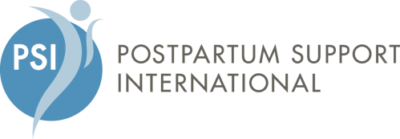Postpartum Support International Urges Friends, Family to Check on New and Expectant Moms this May

Contact: Kim Lehman, 717-599-0891
kalehmanpr@gmail.com
Postpartum Support International Urges Friends, Family
to Check Out What’s New and Expected this May
One in Five Mothers Experience a Mental Health Disorder during o
After Pregnancy; Support and Treatment Are Available, Accessible, and Effective
May 1, 2023—PORTLAND, OR.—May brings National Maternal Mental Health Month and Mother’s Day, making it an ideal time to educate mothers and the people in their lives about postpartum depression and other perinatal mental health (PMH) disorders. Nonprofit Postpartum Support International (PSI) works to improve awareness of PMH disorder and access to support and care while reducing the stigma surrounding perinatal mental health disorders.
Each May, PSI places an additional emphasis on educating the public during National Maternal Mental Health Month. May is also when Americans celebrate mothers and motherhood, which is anything but fun for those suffering from a PMH disorder. Research shows that although PMH disorders affect 800,000 people a year, only 25% of them receive treatment. One in five women and one in 10 men experience depression or anxiety during the perinatal period, which includes pregnancy, childbirth, and the 12 months postpartum. Despite improvements in the understanding of these disorders, each year, hundreds of thousands of parents suffer in silence because they don’t know what they are experiencing is normal and treatable, or they are embarrassed and/or ashamed.
PMH disorders are the most frequent complications of childbirth. They also rank among the leading causes of pregnancy-related deaths in the US Although postpartum depression is commonly cited, other PMH disorders include anxiety, obsessive-compulsive disorder, post-traumatic stress disorder, bipolar disorders, and psychosis. They affect parents of every culture, age, income, gender, and race.
“I had a crash course in postpartum mental health disorder in 1994 when my son was born. I’m a mental health professional, but I had no idea there was a name for what I was going through,” said Wendy Davis PhD, PMH-C, executive director of Postpartum Support International. “I can’t believe that any good mother who would feel such dread and despair. I was quickly sinking and isolating myself until a friend encouraged me to seek help, which led to my recovery and put me on a mission to help other parents who suffering the way I did.”
Recent tragedies involving Lindsay Clancy in the Boston area and Paulesha Green-Pulliam in San Francisco have brought PMH disorders to the forefront of national news. Although symptoms vary, PMH disorders often make mothers feel alone and helpless. They can be paralyzed by anxiety and doubt in their parenting ability, which can lead to feelings of regret and despair at a time that society dictates should be one of the happiest in their lives. For a woman suffering from PMH disorder, there is nothing more terrifying than feeling alone, abandoned, or without the help she so desperately needs.
Moms and their partners should know that support and care are available, and you don’t need a diagnosis to get help. PSI offers coordination, convenience, and peer support, helping people find the right resources online and in their own communities. Parents can use the PSI Helpline for support and resources at 1-800-944-4773 (English and Spanish), text “help” to 1-800-944-4773 (English) or 971-203 -7773 (Spanish), or visit postpartum.net. PSI has an online Perinatal Mental Health Provider Directory that lists trained providers and support groups and operates a Perinatal Psychiatric Consultation line, where any medical provider can consult an expert perinatal psychiatrist free of charge. . PSI facilitates more than 30 virtual support groups including those for military families, LGBTQIA+ families, Spanish speakers, and more.
“Perinatal Mental Health disorders have proven to be highly treatable,” Davis said. “To the parents who are suffering: We see you. You’re not alone. This is temporary. With help, you’ll feel like yourself again.”
Ways to help a mother experiencing PMH disorder:
- Let him know that the PSI Helpline (1-800-944-4PPD) provides comfort and support. It’s a great first stop for support and care and you don’t need a diagnosis to get help. Call or text if she gives you permission and needs help doing so.
- Tell him he’s doing a great job, even though he might not like it.
- Tell her you will see her baby comfort her and love her.
- Give her a hug and remind her that she is loved and appreciated by many, including her baby.
- Provide a safe space for him to express his anxiety and fear.
- Make sure she knows that she’s clearly trying her best, that you’re proud of her, and that every new mom is struggling even if it doesn’t seem like it.
- Don’t ask him what you can do to help. Do it. Doing laundry, cooking or ordering takeout, and watching the baby so she has time alone are all ways to provide support.
- Tell him that you are proud of him for everything he does.
- Make sure he knows that PMH ailments are normal and temporary and that it’s okay to get help.
About Postpartum Support International
Founded by a new mother in 1987 to increase awareness in the public and professional communities about the emotional difficulties women can experience during and after pregnancy, Postpartum Support International (PSI) offers many resources for a wide range of needs, situations, and audiences to give families the strongest and healthiest start possible through support and community. PSI offers support, resources, best practice training and certification for health care professionals and volunteer coordinators nationwide and in more than 30 countries. PSI is committed to removing stigma and ensuring that compassionate, quality care and support is available to all families. Need help? Call 1-800-944-4PPD (4773). Learn more at postpartum.net.
###





